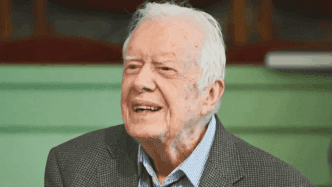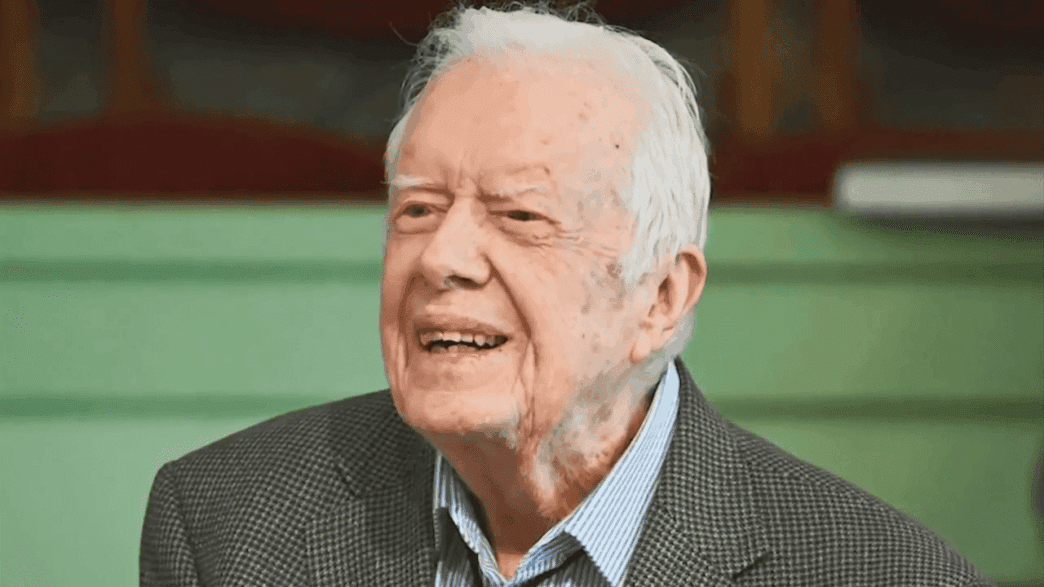Jimmy Carter, the 39th President of the United States, has passed away at the age of 100, marking the end of a remarkable journey that extended from rural Georgia to the global stage. His death occurred at his home in Plains, Georgia, over a year after entering hospice care, as confirmed by The Carter Center via the social media platform X.
Carter’s life narrative is a profound testament to a man who sought to change the world, not just from the Oval Office, but long after leaving it. After a single term marked by significant political challenges, such as the Iran hostage crisis and economic turmoil, he shifted his focus to humanitarian efforts that left a lasting legacy. His foundation, The Carter Center, became a beacon of democracy and human rights around the globe.
Carter was born in Plains, Georgia, on October 1, 1924. Raised during the era before civil rights became a full-fledged movement, his upbringing in a predominantly Black community shaped his views on race and justice. He later reflected these ideas during his political career, approaching race relations with progressive ideas that drew both praise and criticism.
A graduate of the U.S. Naval Academy, Carter chose to leave a promising Navy career to manage the family peanut farm after the death of his father. This decision marked the beginning of his political journey, leading to a governorship of Georgia and ultimately the presidency.
Initially viewed as an outsider, Carter entered the 1976 presidential race with a pledge of honesty. His message resonated with an American public weary of political scandal and loss of trust in government following the Watergate scandal. Yet, during his presidency, Carter faced intense challenges, including soaring inflation and foreign policy crises.
One of his notable achievements was brokering the Camp David Accords in 1978, a peace agreement between Egypt and Israel. Despite such diplomatic successes, domestic issues plagued his presidency, contributing to his defeat by Ronald Reagan in 1980.
Carter’s post-presidency years were defined by an unwavering commitment to humanitarian work. The Carter Center, established in 1982, allowed him to pursue his vision of global peace and health. His efforts in promoting democratic elections worldwide and near eradication of the guinea worm disease highlight his profound impact beyond politics.
Carter’s legacy is complex, with evaluations of his presidency evolving over time. While often criticized during his time in office for management shortcomings, his contributions to human rights and health have garnered renewed respect. Carter himself noted that his biggest achievements came after leaving the presidency, a period during which he earned the Nobel Peace Prize in 2002.
Throughout these endeavors, Carter maintained a straightforward ethos: act on one’s beliefs regardless of political confines. His ability to engage with foreign leaders and challenge U.S. administrations demonstrated his independent spirit. Notably, Carter often took bold stands, such as criticizing the Iraq war and advocating for the inclusion of North Korea in global dialogue.
His steadfast dedication to volunteerism, illustrated by his hands-on work building homes through Habitat for Humanity, endeared him to millions. Carter’s approach to retirement life set a unique precedent, blending personal advocacy with ongoing public service work.
Jimmy Carter leaves behind an indelible mark on both the history of the U.S. Presidency and global humanitarian efforts. His journey from a small-town farmer to a world leader underscores a life committed to service and faith. As the world reflects on his storied life, Carter is remembered not just for his political career but for the enduring contributions he made in advancing peace and human rights worldwide.
Source: Wsvn








